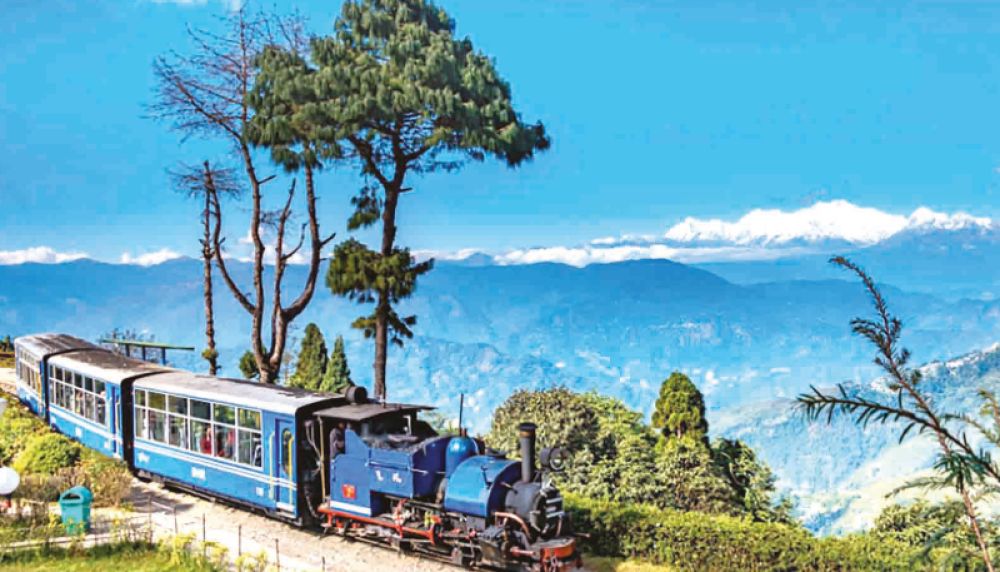

The Darjeeling Himalayan Railway, also known affectionately as the "Toy Train," is an iconic feature in the landscape of Darjeeling, West Bengal, India. This historic railway has its origins dating back to the 19th century. In 1879, construction started and by July 1881, the line was completed up to Darjeeling, offering a steam-engine powered solution to traversing the difficult terrain of the Himalayan foothills.
The railway was conceived by Franklin Prestage, an agent of the Eastern Bengal Railway, as a means to facilitate transportation of goods and passengers, and to boost the tea and tourism industries in the region. With an engineering design by Alexander Allan, the Darjeeling Himalayan Railway became not just a commercial transport route, but also a testament to human ingenuity in railway construction.
In 1999, it earned the status of a UNESCO World Heritage Site, further cementing its global recognition and importance. The railway continues to be an integral part of Darjeeling’s heritage, showcasing the rich history of the area and capturing the hearts of travelers.
Tourism in Darjeeling has been synonymous with the Toy Train experience. The journey offers breathtaking views of the mountains and valleys, lush tea gardens, and the majestic Kanchenjunga peak. As it winds its way up to an elevation of over 2,000 meters, the Darjeeling Himalayan Railway provides an unparalleled window into the natural beauty of West Bengal.
For decades, the ride has been a major draw for tourists, both domestic and international, adding to the old-world charm of Darjeeling. The original steam locomotives are still operational on a few routes, especially the joyrides between Darjeeling and Ghum station, which provide an authentic steam era experience to enthusiasts.
In recent times, there has been a growing interest in heritage and experiential travel, and the Darjeeling Himalayan Railway fits perfectly into this category. The railway authorities have introduced a number of initiatives to enhance visitor experience, including theme-based joy rides, cultural performances at stations, and the opportunity to learn about the history and mechanics of the Toy Train.
Alongside traditional journeys, the trend of luxury travel has also influenced the railway service offerings. Newer, more comfortable carriages have been introduced for tourists who wish to experience the historic route with modern comforts.
Moreover, active travel experiences like trekking along or near the railway tracks have become popular. These treks offer an interactive way to learn about the flora and fauna, as well as the culture of the local communities living alongside the railway.
Visitors wishing to experience the Darjeeling Himalayan Railway should book their tickets in advance, especially during peak tourist seasons. The railway station in Darjeeling and the Darjeeling Himalayan Railway Museum provide rich insights into the historical and cultural significance of the "Toy Train." For those passionate about history and rail travel, a visit to this timeless railway is an absolute must.
As the Darjeeling Himalayan Railway continues to chug along the hillsides, it remains a living heritage and an essential feature of Darjeeling’s tourism, preserving the romance and adventure that has been associated with this picturesque hill station for well over a century.